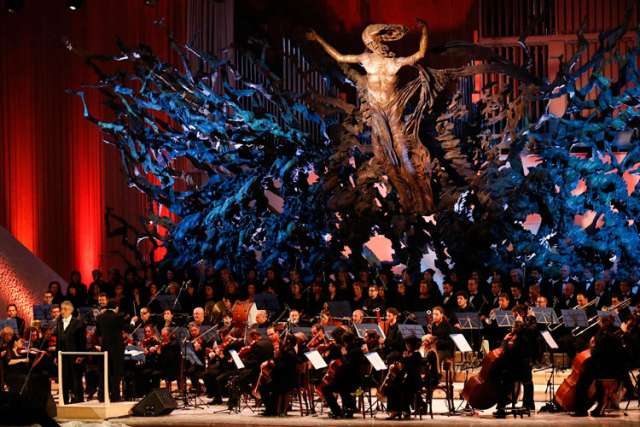Echoes of such a place are all over the human story. We taste it in the green valleys and restful waters of Psalm 23. We glimpse it in the rose-garden Alice tries to reach through the tiny Wonderland door; in L.M. Montgomery’s Blue Castle; the myth of lost Atlantis; even “the Force” of Star Wars. The “somewhere over the rainbow.” Is it imaginary or real? Wish-fulfilment? Escapism? Or, the seeds of the kingdom of heaven?
Is it within us? It’s the place from which we love, not from need but from fullness. We all have it, and we all can draw out from it not only love, but the treasures love brings — forgiveness, patience, trust and kindness. (For an unforgettable catalogue of love’s gifts, glittering, hard and shining as diamonds, see 1 Corinthians 13 and Galatians 5:22.)
Paradoxically, we may discover that inner fullness only in our inner emptiness. When we’re stripped, unable to hide behind images and illusions — those projections by which we often fool others, sometimes fool ourselves — we may finally be able to look at what’s really inside us. We might expect barrenness, perhaps ugliness. The path to the inner self likely leads through barren and ugly spots. But, they aren’t the centre, only the periphery.
When our heart’s heart is finally reached and turns out to be filled with wonder and beauty — won’t we love the one who helps us reach it? Won’t we treasure him more than all we own, more than life itself? That kind of love, I suspect, brought Mary Magdalene to the ignominious tomb of Jesus; roused tears when she heard Him speak her name; gave her courage to go and tell her silly-heart tale that “the tomb is empty, He’s risen.” Poverty brought her to Christ in the first place — Luke 8:2 tells us she was cleansed of seven demons. But her love comes from fullness. She stands fast at His suffering and death. She receives the joy of His resurrection and ascension. She goes out to the periphery, where the apostles are hiding in fear.
Followers of Christ belong at the “peripheries in need of the light of the Gospel.” We go out to the edges or outskirts. This is where the Church belongs, Pope Francis tells us: going out to the peripheries of our world, where the livin’ isn’t easy.
We go out because we hold something at the centre. We don’t lose it by going, but carry it with us, as did Mary and the disciples.
I’d read Pope Francis’ Evangelii Gaudium without particularly noticing that word “periphery” (I.20). I had to go back and re-read after hearing an introduction to the Pope’s exhortation by a Quebec bishop. The bishop’s presentation dwelt on Pope Francis’ use of the words “going out” and “peripheries.” The talk illuminated those peripheries, and left me reflecting on where the peripheries are in my world, why I avoid them, and what might happen if I were to go out to them with Gospel joy.
I contemplated the peripheries in myself, desolate and barren — I may look down on the priest who avoided the wounded traveller in Jesus’ parable, but I’ve readily put my comfort and safety ahead of the clear need of a stranger or even a friend. I contemplated the peripheries in society — I keep by my desk the UN’s 2014 photograph entitled “Damascus Food Line,” a throng of desperate people stretching to the horizon, surrounded by bombed-out buildings. Peripheries in the Church — where we still have trouble welcoming the “other.” Peripheries I prefer not to visit or even know, if I can help it. Places to which the Lord calls us. “All of us,” Francis writes, “are asked to obey His call to go forth from our own comfort zone to reach all the ‘peripheries.’ ”
Why the unfamiliar outskirts, why those dreaded edges? Why not stay home in the safe centre? Mary went to Calvary, to the tomb, because that’s where Christ was. Our hearts pull us towards Him, and that’s where He is, at those unwanted peripheries. We have new opportunities to discover Him there, as our Church is shoved out of the centre of our culture — to discover Him there, and throw our bushel off the light of the Gospel.
Feast of Mary Magdalene, July 22.
(Marrocco can be reached at marrocco7@sympatico.ca.)


